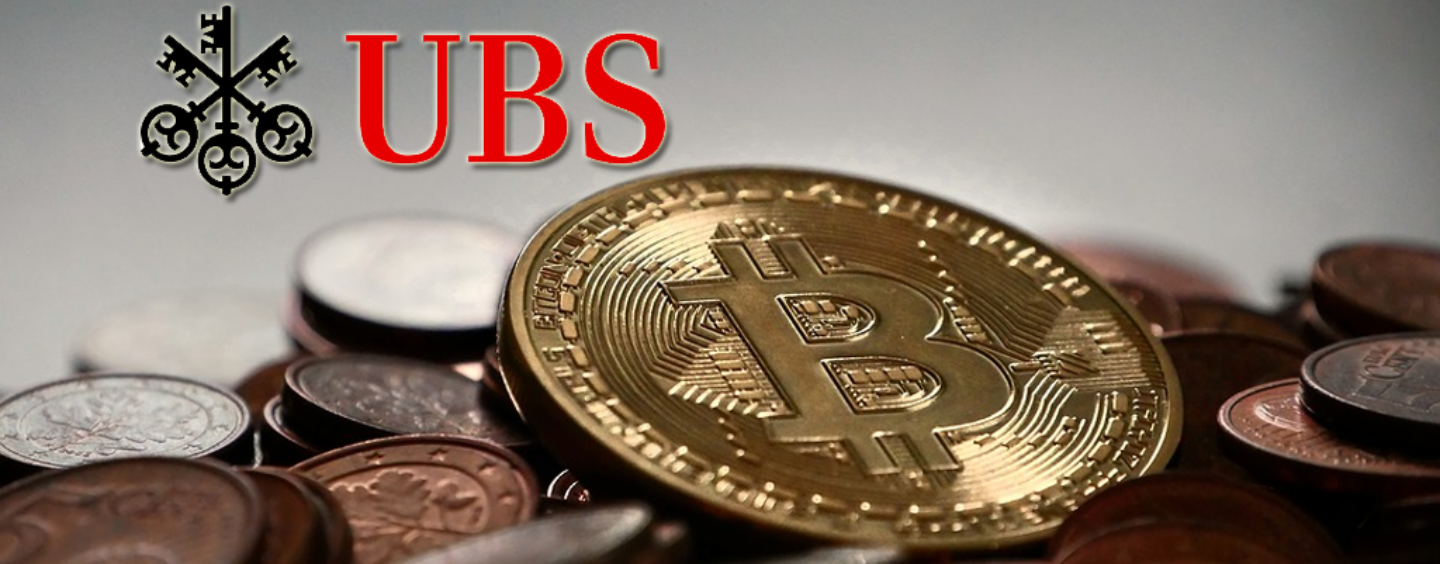70% of changes in bitcoin price is mainly due to speculation. Bitcoin instability, structure, and its high volatility act as limitations to go mainstream analyst says.
“Bitcoin is still too unstable.”
A report sent to UBS clients underlines that crypto enthusiasts shall still wait for quite some time before Nakamoto money could potentially replace normal money supply, coins or even travelers’ checks. To be precise, the study conducted by the Swiss bank UBS(CHF 915 Bio of assets under management and valued at CHF 58,89 Bio in 2017) mentions that the price need to hit nearly $ 213’000…while BTC price today flirts with $ 6’320.
Apart from its price that needs to reach the moon, its network’s processing capabilities would need to drastically improve as well. As a brief reminder, VISA is able to process more than 20’000 transactions per seconds, although on average it handles 2’000 transactions per second. Bitcoin, on the other hand, faces a serious problem of scalability as its maximum capacity is estimated between 3.3 and 7 transactions per second.
Would it be then to early to categorize the three keys logo bank as a bitcoin detractor? Maybe yes, but it seems that the road ahead bitcoin is still long before it could thumb its nose at the US notes.
As per UBS, apart from the scalability problems and its high price fluctuations, there is a lack of clear regulations surrounding bitcoin which could be identified as a major drawback. For this reason, the Swiss bank highlights that “bitcoin falls short of criteria that need to be satisfied to be considered money.”
The 34-page report mentions:
“Our findings suggest that Bitcoin, in its current form, is too unstable and limited to become a viable means of payment for global transactions or a mainstream asset class,”
Joni Teves – UBS strategist.
UBS, Blockchain & Bitcoin
It should be noted that the report does not mention at any time that Bitcoin will not be able to eventually make it. The group of analysts behind the study underlines that if this cryptocurrency improves its scalability and the regulation around it becomes clearer, it could one day be
“a viable payment mechanism and/or a legitimate asset class in which even the most conservative and traditional investors can participate.”
The goal of the report was mainly to provide answers from the banks’ clients requests. Indeed, an important number of investors started to be highly interested in this type of asset and several questions were raised. The bank’s analysis shall therefore provide eagerly awaited answers.
Publication’s authors mention in the paper:
“We have received many questions on the subject, which we hope to address in this educational piece.”
The results obtained were mostly based while comparing “macro variables and its [bitcoin]performance against various financial asset classes“. In the study, researchers draw parallels between bitcoin and one of the most online payment service, Paypal. They conclude that its “diffusion” shall follow the same trends as online payments.
This report on Bitcoin and Blockchain is not the first one conducted by UBS. Even if the bank CEO Sergio Ermotti, told CNBC last year to be ”not necessarily” a believer in cryptocurrencies, the bank published a report on Fintech and blockchain entitled “Global banks: Is Fintech a threat or an opportunity?” at the same time. In this report, the Swiss bank already mentioned the fact that the blockchain technology is expected to enable widespread cost reductions and revenue enhancement in the future.
Featured image via Pixabay






